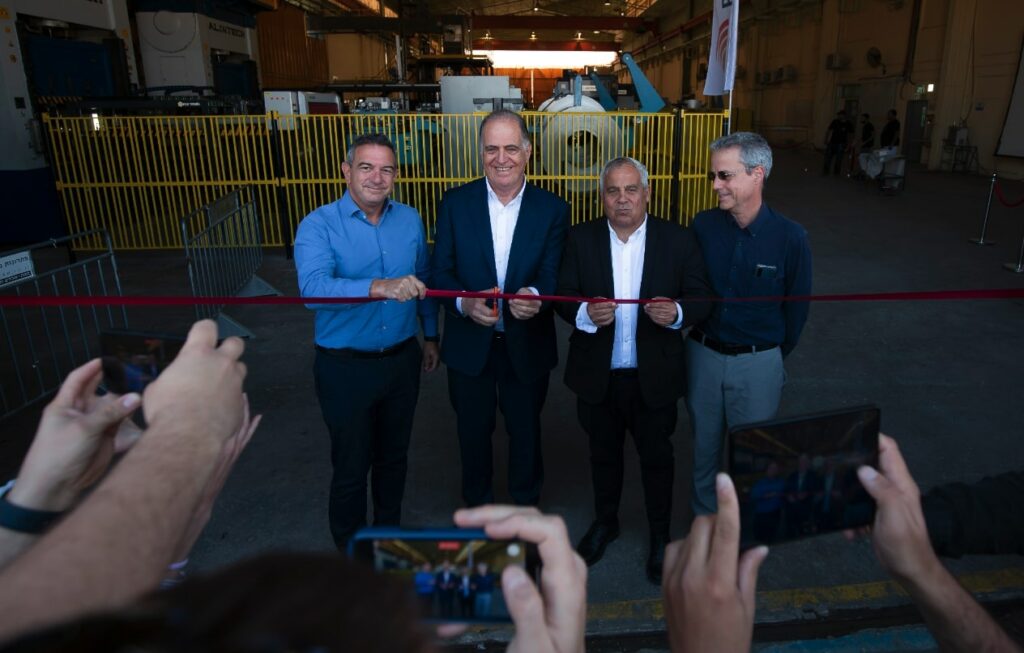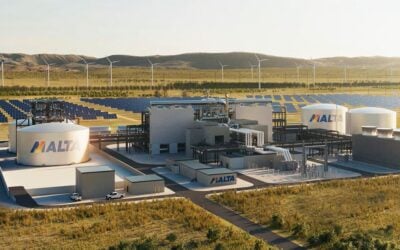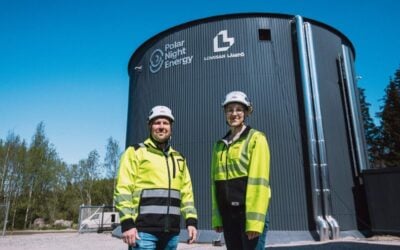
Israel-based thermal energy storage firm Brenmiller Energy has inaugurated a factory targeting 4GWh of annual production capacity by the end of 2023, the first such gigafactory anywhere, it claimed.
The company announced the opening of its thermal energy storage gigafactory in Dimona, Israel, yesterday (2 May), saying it will be its primary manufacturing hub. Its production lines are expected to reach full capacity by the end of the year and will be able to produce 4GWh of Brenmiller’s bGen modules annually.
Enjoy 12 months of exclusive analysis
- Regular insight and analysis of the industry’s biggest developments
- In-depth interviews with the industry’s leading figures
- Annual digital subscription to the PV Tech Power journal
- Discounts on Solar Media’s portfolio of events, in-person and virtual
Its bGen solution charges by heating rocks using electrical power, then stores that power at a temperature of 750°C, and discharges by releasing the accumulated heat to heat pressurised water and generate steam, either for electricity or for industrial heating processes.
The gigafactory, which features rooftop solar to power its operations, has been financed through a €7.5 million ($8.2 million) facility agreement with the European Investment Bank (EIB). Thomas Östros, the EIB vice-president responsible for energy, commented:
“The need for energy independence throughout the EU is indisputable. Renewables alone, however, will not solve our energy or climate crisis. Long-duration energy storage is critical to back up renewable intermittency, decarbonise our electric grids and industrial factories, and ensure a secure energy supply. We’re pleased to have provided financing for Brenmiller’s gigafactory, which will manufacture thermal energy storage technologies that help the EU overcome today’s critical energy challenges.”
Avi Brenmiller, founder and CEO at Brenmiller Energy, said: “Unveiling our TES (thermal energy storage) gigafactory marks a pivotal milestone in our company’s history: what started as a family business has grown into a company that can help the global economy’s efforts to decarbonise, and we believe our gigawatt-scale production capacity will allow us to meet growing demand for our solutions from industrial and utility customers.”
The company recently struck a non-binding deal with an unnamed global utility to deploy up to 2GWh of its systems while also deciding to de-list from Israel’s stock exchange and solely retain its Nasdaq listing.
In late 2022, it inaugurated a 24MWh bGen unit at a power plant in Tuscany, Italy, to help the plant reduce start-up times and accelerate load variations, and commissioned a 1MWh unit at a water infrastructure production facility in Brazil a few months earlier.






